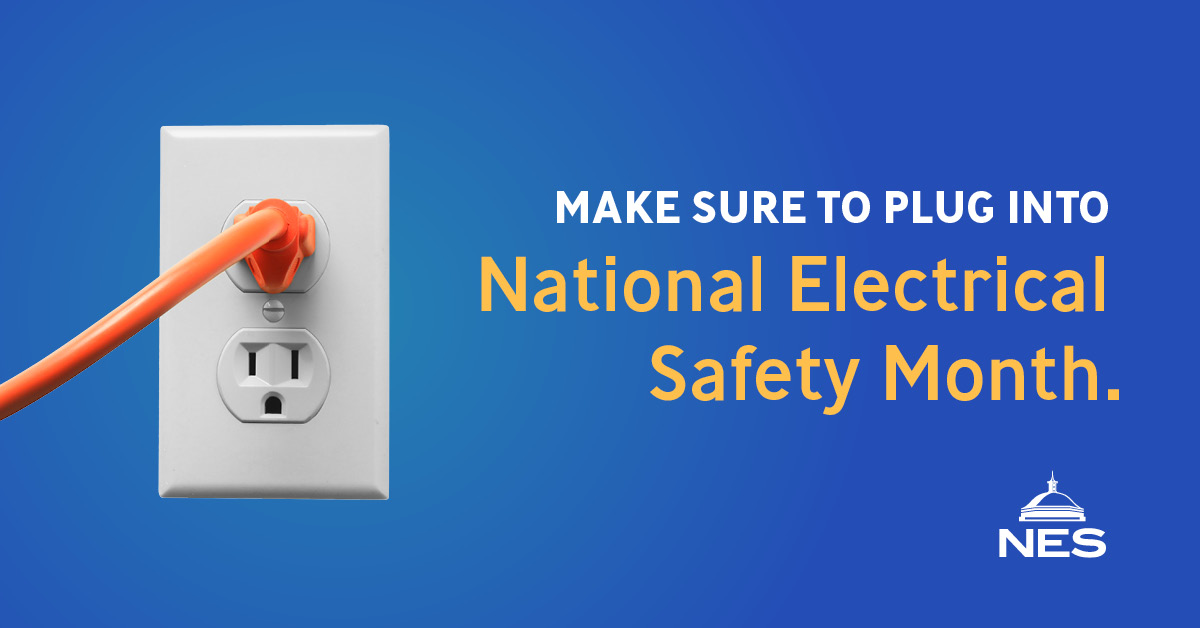It’s National Electrical Safety Month! Ensuring the safety of customers and employees is NES’ top priority. Below are various electrical safety tips that we encourage everyone to use daily. On behalf of the Electrical Safety Foundation International (ESFI), here are some steps to take to help mitigate hazardous conditions around the home:
General Extension Cord Safety Tips
- Never use extension cords as a constant, long-term extension of your household’s electrical system. Continuous use can cause an extension cord to deteriorate and can result in a potentially dangerous electric shock or fire hazard.
- Never plug a space heater into an extension cord or power strip.
- Never plug two extension cords together. Doing so can result in overloaded circuits, short circuits, and damaged cords, which could lead to fires or electric shocks. Instead of plugging extension cords together, consider installing additional outlets where needed.
- Do not run cords through walls, doorways, ceilings, or under rugs or carpet. If a cord is covered, heat cannot escape and can create a fire hazard.
- Make sure that your extension cord or power strip is properly rated for the device that will be plugged in and is marked for either indoor or outdoor use.
- Regularly inspect electrical cords and extension cords for damage.
Indoor Safety Tips
- Reduce your electrical load by using energy-efficient appliances and lighting.
- Unplug small appliances when not in use.
- Use an outlet cover or plastic outlet cap to keep children safe around outlets.
- Make sure your home has smoke alarms. Test them monthly, change batteries yearly, and replace the unit every 10 years.
Outdoor Safety Tips
- Know what’s below before you dig. Dial 8-1-1 to have your local electric or natural gas company representative mark the location of underground lines for free.
- Never touch downed power lines.
- Watch for overhead power lines every time you use a ladder, work on roofs and trees, or carry long tools or loads. Keep kites, model airplanes, and metallic balloons away from power lines.
- Do not overload outdoor electrical and/or extension cords or allow them to run through water or snow on the ground.
For more information on National Electrical Safety month and ways to stay safe, click here.
Categories:
Tags:
Tags:
